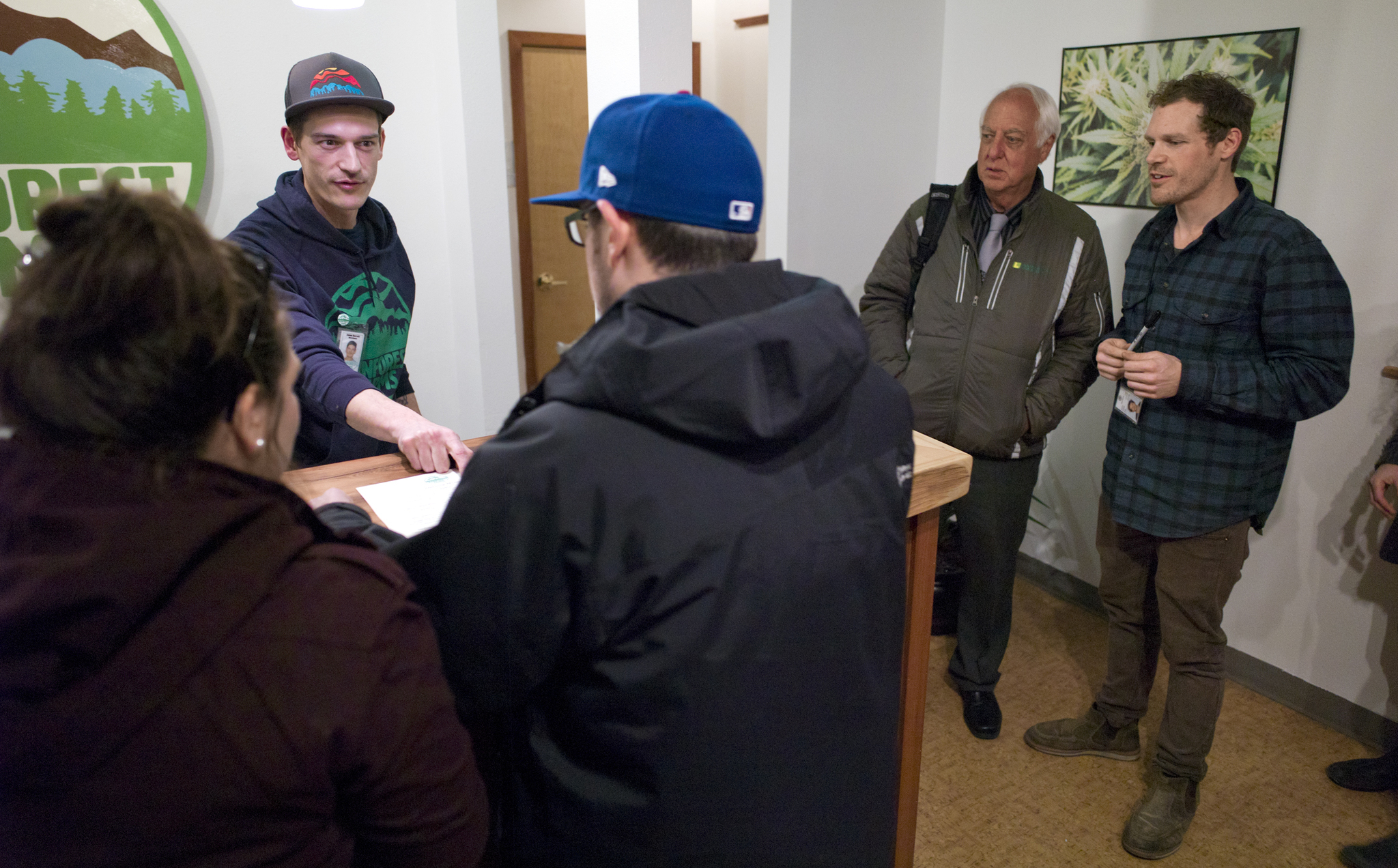James Barrett flew to Anchorage this week with a suitcase of cash.
Tuesday was the deadline for Alaska’s marijuana growers to pay their taxes for December, and Barrett — an owner of Juneau’s lone working pot cultivator — had a bill due.
“So far, so good. We’re able to pay our taxes on time. That’s a big responsibility,” he said by phone after returning to Juneau.
Thanks to federal restrictions on marijuana-related banking, Alaska’s growing pot businesses can’t pay taxes electronically. When the state set up an electronic payment system, its bank balked. Colorado, Washington and Oregon, which use different banks, haven’t had that problem.
With no electronic transfers allowed, marijuana cultivators must pay in check or in cash, delivered to a drop box in Anchorage. Taxes are due at the end of the following month. For December, that meant a due date of Jan. 31.
According to figures released Friday from the Tax Division of the Alaska Department of Revenue, 13 cultivators paid $145,800 in taxes for products sold in December. Those products included 167 pounds of marijuana bud or flower.
[Alaska board mulls post use in retail stores]
The tax on bud and flower is $50 per ounce.
Cultivators also sold 46 pounds of trim and other plant parts, which are taxed at $15 per ounce. Those plant parts tend to contain lower levels of psychoactive chemicals.
Tax revenue and the number of taxpayers was up in December. In October, when the state’s first cultivators began sales, four taxpayers paid $10,400. In December, seven taxpayers paid $81,100.
The state expects to collect $5 million in tax revenue from marijuana businesses between July 1, 2016 and June 30, 2017.
There were seven cultivators operating in Fairbanks, two in Kenai and one each in Kasilof, Sterling, Juneau and Anchorage.
Six cultivators paid with cash. Seven paid with check.
Barrett was among the cultivators paid with cash, and though he thinks the Anchorage drop box is “awkward and inconvenient,” he’s happy to be able to work legally.
“The taxes aren’t killing us yet,” he said.
This week’s payment by Rainforest Farms was its second since its retail store opened on the day after Thanksgiving.
City and Borough of Juneau sales taxes are paid on a quarterly basis, and Barrett said Rainforest Farms’ payments to the city will be several thousand dollars.
He expects that Juneau has a market large enough to support five or more marijuana retailers. His store sells out within hours each time a crop is harvested and made available, and he expects that to continue to happen through 2017. He said Rainforest Farms is running at about one-quarter to one-fifth of capacity, and it is able to purchase more lights and outfit more growing space each time a harvest is sold. By May, he expects to be at 50 percent of capacity.
“On our end, we’re doing what the (legalization) initiative promised, and so that’s a good thing,” he said.
• Contact reporter James Brooks at james.k.brooks@juneauempire.com.

